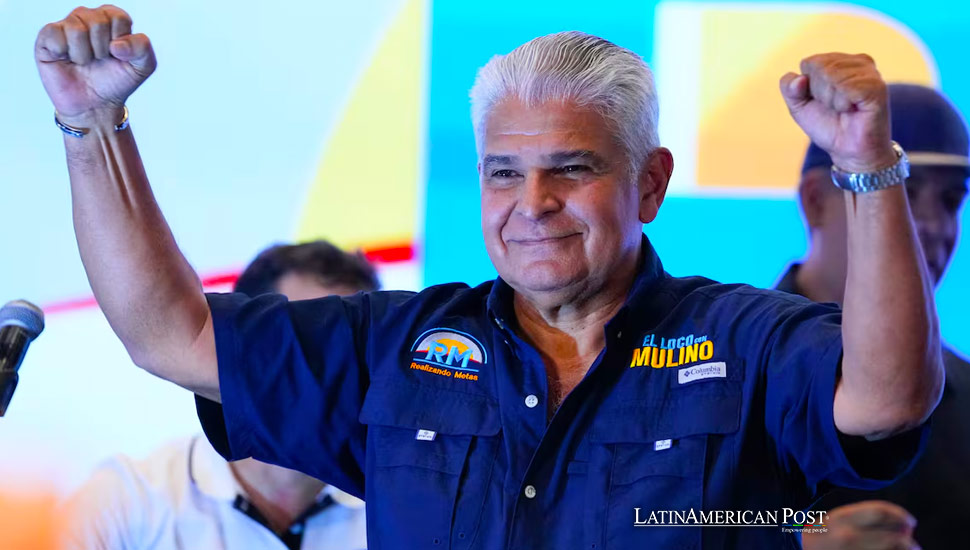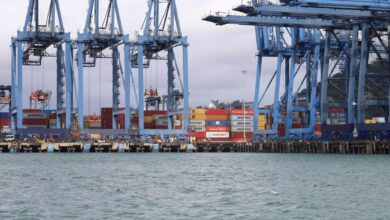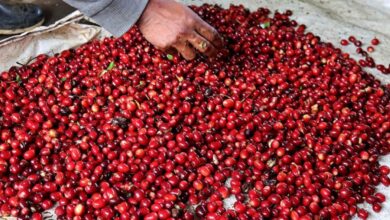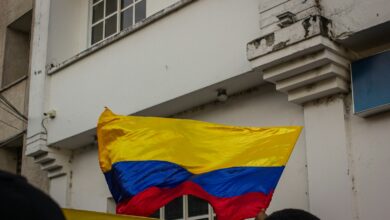Mulino Faces Economic and Migratory Challenges in Panama

José Raúl Mulino, a pro-business politician, assumes the presidency of Panama with promises to revive the economy and address irregular migration through the Darién jungle, a critical crossing point for hundreds heading to North America daily.
José Raúl Mulino, known for his pro-business stance, has been inaugurated as the new president of Panama. At 65, Mulino won the presidential election on May 5, securing 34.23% of the vote. His administration begins with significant challenges, including reviving the economy and addressing the ongoing migration crisis through the Darién jungle.
The inauguration ceremony in Panama City featured prominent guests such as King Felipe VI of Spain and the presidents of Colombia, Costa Rica, the Dominican Republic, Ecuador, Honduras, and the Prime Minister of Belize. High-level representatives from the United States and China were also in attendance. This event marks a pivotal moment for Panama as it navigates economic difficulties and migratory issues.
Mulino’s journey to the presidency was marked by complications. His candidacy was confirmed by the Supreme Court after the disqualification of former President Ricardo Martinelli due to a corruption conviction. Initially Martinelli’s running mate, Mulino now assumes office without a vice president. His inauguration at the Atlapa Convention Center signifies his ascent as the eighth president of democratic Panama, post-military regime.
The presidential sash Mulino received was crafted by Colombian tailor Luis Sebastián Delgado, the same designer for former President Mireya Moscoso’s sash. Despite his campaign’s slogan “more chen chen (money),” Mulino has openly acknowledged the lack of funds, aligning with analysts’ long-standing warnings about Panama’s financial situation.
Economic Challenges and Strategies
Reviving Panama’s economy is Mulino’s top priority. The dollarized economy, heavily dependent on the services sector, has faced severe disruptions. The water crisis affecting the Panama Canal, which necessitated restrictions on ship transit, and the closure of the Cobre Panama mine have significantly impacted the national GDP. The mine closure, involving Canadian company First Quantum Minerals, accounted for nearly 5% of Panama’s GDP.
Moreover, the outgoing administration’s mismanagement of public funds under the guise of pandemic-related expenditures has exacerbated the economic strain. Panama’s national debt has ballooned from $31 billion to over $50 billion in just five years. Despite a 7.3% GDP growth in 2023, projections for this year range between 2.5% and 3.5%, with JP Morgan revising its forecast upwards to 3.5% due to improved canal transit numbers following recent rainfall.
Addressing the Migratory Crisis
A critical issue for Mulino’s administration is managing the irregular migration through the Darién jungle. Over 520,000 people traversed this treacherous route in 2023, with more than 195,000 having crossed so far this year. Mulino proposes a massive repatriation of these migrants, seeking financial support from the United States to fund this initiative.
However, many are skeptical about the feasibility of this plan. The Darién Gap, a dangerous stretch of rainforest between Colombia and Panama, has become a vital passage for migrants heading to North America. The logistical and humanitarian challenges of managing such a large influx of migrants are significant, requiring coordinated international efforts and substantial resources.
Mulino’s strategy involves strengthening border security and enhancing cooperation with neighboring countries. By collaborating with Colombia and the US, Panama aims to develop a comprehensive approach to manage migration flows, protect vulnerable populations, and uphold human rights. This multi-faceted strategy highlights the complexity of the migratory issue and the necessity for collaborative solutions.
Navigating Political Turbulence
Mulino faces a fragmented parliament and public skepticism about his association with Martinelli, who, despite his popularity, represents corruption and influence-peddling. Campaign posters featuring both Mulino and Martinelli have added to public concerns. Mulino has tried to distance himself from Martinelli, declaring, “I do not commit Ricardo Martinelli; I am the president.”
To address these concerns, Mulino has engaged with all parliamentary factions, including the independent Vamos coalition, to build consensus for his policies. His administration’s success hinges on its ability to implement effective reforms and navigate the political landscape. Key policy proposals, such as raising the retirement age and introducing new taxes, are likely to face social resistance.
Mulino’s efforts to engage with various political groups demonstrate his commitment to dialogue and cooperation. These interactions aim to foster support for his administration’s policies and ensure the effective implementation of necessary reforms. Despite these efforts, Mulino must work to build trust and demonstrate his independence from past administrations’ corrupt practices.
A New Era for Panama
José Raúl Mulino’s presidency marks a critical juncture for Panama. His administration faces the daunting task of reviving the economy and managing the migratory crisis. Mulino’s initial steps, including engaging with diverse parliamentary groups and proposing comprehensive solutions to pressing issues, reflect his strategic approach to governance.
The coming months will be crucial in determining the effectiveness of Mulino’s policies and his ability to lead Panama toward stability and growth. By addressing the root causes of economic instability and managing the migratory crisis with a balanced, humane approach, Mulino can set Panama on a path to recovery. The eyes of both the nation and the international community will be closely watching his administration’s progress.
Also read: Mental Fortitude Technology: Shaping Panama’s Olympic Athletes
With the support of regional and international partners and through transparent and inclusive governance, Panama has the potential to overcome its current challenges and achieve sustainable development. The resilience and determination of the Panamanian people, coupled with effective leadership, will be vital to navigating this pivotal period and building a prosperous future for the nation.





